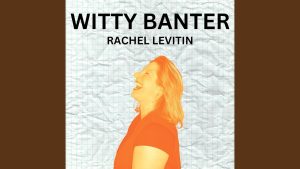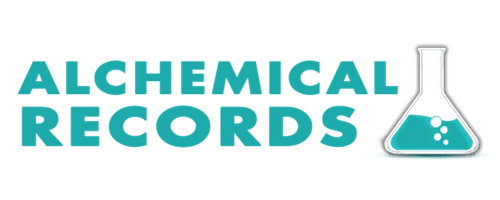
Down In The Reeds Festival returns to The Parks at Walter Reed in Washington D.C. on Saturday, October 8, 2022. The day-long Fall celebration highlighting “the ability of music to heal at the micro and macro level” will bring together a mosaic of entertainment and activations reflective of DC’s cultural diversity, “bridging race, culture, and socio-economic status across all Wards.”
Celebrating its third year, Kingman Island Festival and DC Funk Parade organizer Chris Naoum’s experience in event planning, as well as in local music advocacy, affirmed the notion that festivals provided the most significant impact on local artists and the local community. The vision for Down In The Reeds caught the attention of singer and songwriter Dom Flemons, and the two collaborated in the planning and execution of the first year of the event.
Chris Naoum: “But I said, “How can I have the biggest impact?” And a music festival is a way to get a lot of people in one place, educate them about local music, pay local musicians well, and give them a platform to go to the next level. If I could focus all my time on one or two big events, which at the beginning were Kingman Island and Funk Parade, then that, which ended up being way more time than I expected, but if you’re able to focus on one or two events then it’s not like every single month, every couple of weeks you need to do smaller events and showcases and stuff like that which actually takes up a lot more time.”
With a focus on rhythm and drumming, this year’s Down In The Reeds Festival will feature performances by Red Baraat, Medicine Singers with Yonatan Gat, as well local powerhouse artists Mary-El, Sound of the City, Project Locrea, and Alison Crockett. Their ties to the DMV and the history of Walter Reed complement their own convictions around the healing power of music.
Mary-El: “I write about a lot of things that I feel are experiences or feelings or thoughts that I think are universal, and I think with music you can use it to heal people. You can use it to relate to people or put things in a way that people can relate to. And, bringing everyone together from different types of genres of music and different walks of life, and different areas of the DMV, kind of, is cool because we are kind of showing that all our music is helpful and we all are relating to music on any level whether it be personally or as one whole group of people.”
Alison Crockett: “When I go and write music, that is how I actually – I get out and deal with that, that angst, that frustration, the fear, the anger, the sadness, the anxiety, by sitting down at my piano and playing some chords and letting words come out even if I don’t have all the song; even if I don’t write the whole song. That’s why artists are here. We are, for all due respect, we are the therapists without being the therapists of the human psyche. We are the storytellers. And what is storytelling? The allowing for you to get your, to get your ideas and your feelings and the things that affected you during your life out into the world. And then other people like, ‘Yeah!’ That either takes me to a place where I can relax and think not of anything, where I can laugh at something, where I can party about it; or where I can, or where I can sympathize with it, or I can weep with it, or I can rage with it.”
Precious (Sound of the City): “Ya know, whenever we’re interviewed about our music and how to describe it, it’s timeless. And so, whenever we create we think about not just how it’s presented from the studio – the speakers to your ears – but also what the live experience is like. So, it always has to feel like something. If it doesn’t make us feel something it can’t make it out of the studio. So, our goal every single time is just to create this connection and have people feel something, and that’s it. And, if we’ve done that, you know, mission accomplished. So, it’s great to be amongst all the cast of people who will be performing in their various ways – reaching people, so we look forward to that.”
Biscuit (Sound of the City): “Yeah, that message is awesome, really. We’re really into that. Like, touching people and reaching people; all shapes, sizes, colors, denominations.”
Precious (Sound of the City): “You’re gonna feel it.”
Yana Kikol (Project Locrea): “We share, we often get together and share food together and conversations together like any friends. And, um, I’ve never been one to separate work from personal relationships, so, I think that’s, you know, the deeper message of the music. It’s getting together, playing, it’s not just playing the gig. It’s getting together, building that music. If someone brings a song well then we’ll work it out together. It’s a lot o hanging out, really; a lot of laughter; and the main goal is, of course, to build those friendships and to build that little community that then transfers that message to the bugger community, hopefully.”
The history of the grounds of Walter Reed itself is brought out by Paige Muller of Curious Caravan who curates custom experiences for residents and visitors of the city. Her goal is to create experiences for festival attendees to gain a deeper understanding of how these concepts of music, healing, and community have been intertwined throughout the location’s history. Perhaps one of the most well-known is the Easter Sunrise Service, which, according to theparksdc.com “drew 40,000 people at its largest in 1956.”
Paige Muller: “You know, working with one of the historians of Walter Reed, and just, you know, my own curiosity, you know, well like, ‘What happened here? Why is Walter Reed a name that everyone knows?’ Especially in a city that’s changing so much, I think recognizing the past and recognizing, you know, how we got from there to here; it’s something that, you know, maybe we don’t slow down enough to pay attention to but it’s so important. You know, it’s not just a place where people live. You know. This was an important space for locals, for our military; just so much happened here, and that should be recognized and celebrated, and this festival certainly provides that opportunity. You know, so, whether it’s music, the event, the history, you know, the culture, this is just the perfect kind of encapsulation of all of that. “
Additional performances and workshops will be led by Bele Bele Rhythm Collective, IMKA, FFC Morenada Bolivia USA Washington Jazz Arts Institute Youth Ensemble, Lucid District, Hands on Drums Workshops, House of Musical Traditions Workshops, and others.
In addition to Community partners such as The DC Commission on the Arts & Humanities and Creative Affairs Office and sponsors like Levine Music School and Chuck Levin’s Washington Music Center provide the resources to bring all of these various concepts around the festival together. While many of us don’t immediately think about the intentions behind a festival, Down In The Reeds and its mission to highlight the healing power of music at The Parks at Walter Reed is having the desired impact and continues to grow. You can find details on attending, donating, or volunteering with Down In The Reeds by visiting downinthereeds.com

Daniel Warren Hill is an American musician, writer, and motivational speaker. He is best known as the frontman for Washington DC area Alternative Rock band YellowTieGuy, as co-founder of Capitol Groove Collective, and increasing the exposure of artists on a global scale through his work with Alchemical Records.
Subscribe to Alchemical Records today to support our efforts online and in print.
Join the Alchemical Records Street Team to promote these and other artists, live music, and music community organizations & events while receiving cool perks from artists throughout the region.

Recent Articles March 21st. A day that I will always think of amazing album releases. DC-based musician, producer, and singer-songwriter, Rachel Levitin, released Witty Banter

Alchemical Records is a Washington, D.C. based music publication. We cover the Washington, D.C., Baltimore and Richmond, VA metro area music scenes, including band interviews, articles about your favorite musicians, new music and concert dates.